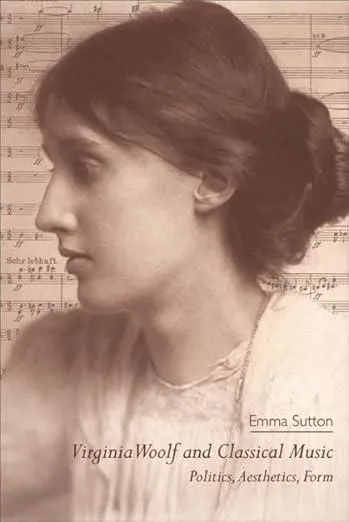
Virginia Woolf and Classical Music : Politics, Aesthetics, Form
(Autor) Emma) SuttonExplores the formative influence of classical music on Woolf's writing In this unique study Emma Sutton discusses all of Woolf’s novels as well as selected essays and short fiction, offering detailed commentaries on Woolf’s numerous allusions to classical repertoire and to composers including Bach, Mozart, Beethoven and Wagner. Sutton explores Woolf’s interest in the contested relationship between politics and music, placing her work in a matrix of ideas about music and national identity, class, anti-Semitism, pacifism, sexuality and gender. The study also considers the formal influence of music – from fugue to Romantic opera – on Woolf’s prose and narrative techniques. The analysis of music’s role in Woolf’s aesthetics and fiction is contextualized in accounts of her musical education, activities as a listener, and friendships with musicians; and the study outlines the relationship between her ‘musicalized’ work and that of contemporaries including Joyce, Lawrence, Forster, Mansfield and Eliot. Key Features Analysis of music, national identity and war in The Voyage Out, Jacob’s Room and Mrs Dalloway Close reading of Wagner’s influence on the plot and narrative techniques of The Voyage Out Analysis of music and philo- and anti-Semitism in The Years Innovative reading of the ‘fugal’ structure of Mrs Dalloway Find out about the Virginia Woolf and Music, Concert series here Listen to an interview with Emma Sutton on ABC's RN here
Emma) Sutton
Emma Sutton is a renowned author known for her novel "The Secret Garden," a beloved classic of children's literature. Her writing style is characterized by vivid descriptions and themes of nature, healing, and the power of imagination. Sutton's work has had a lasting impact on literature, inspiring generations of readers.